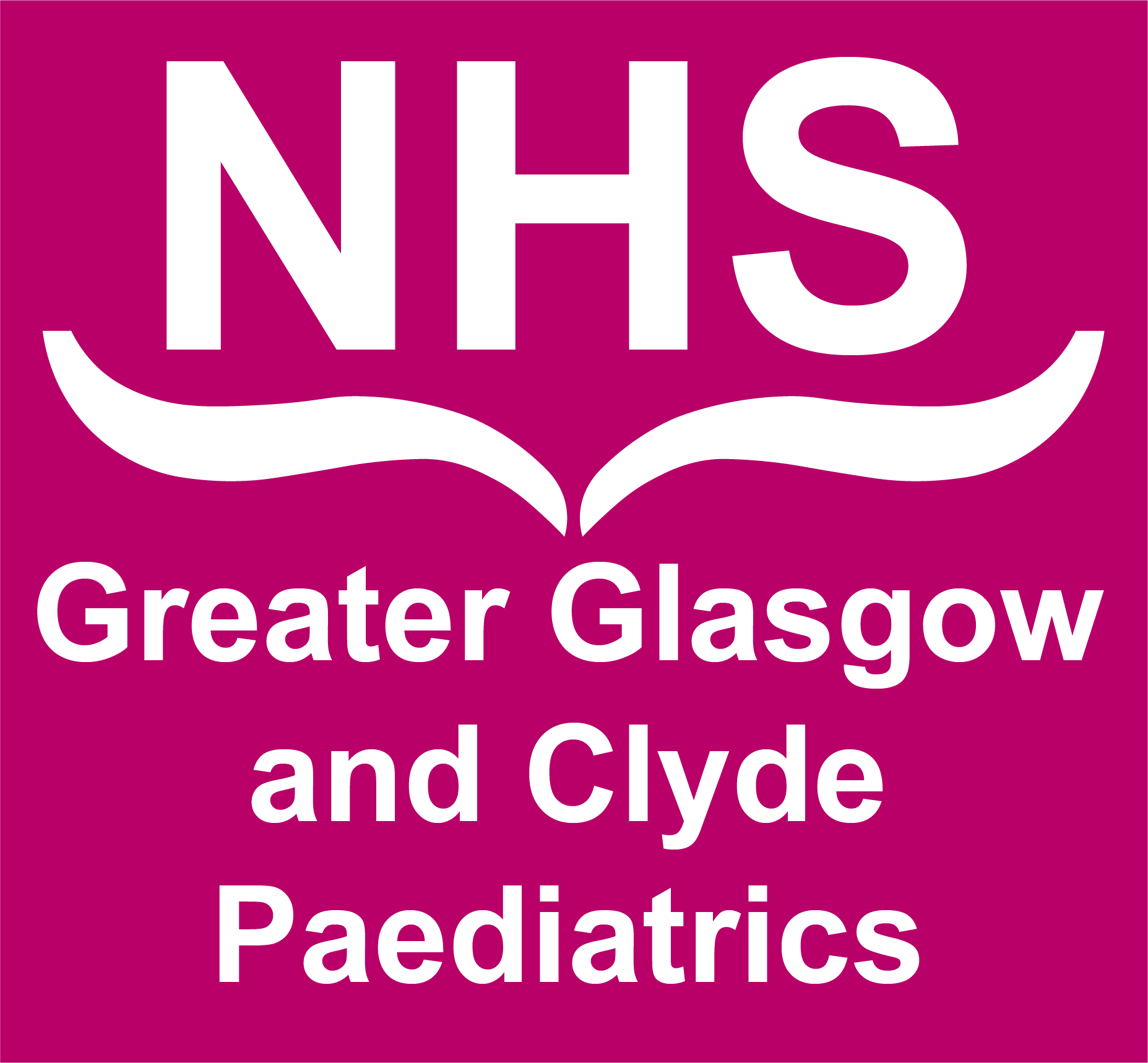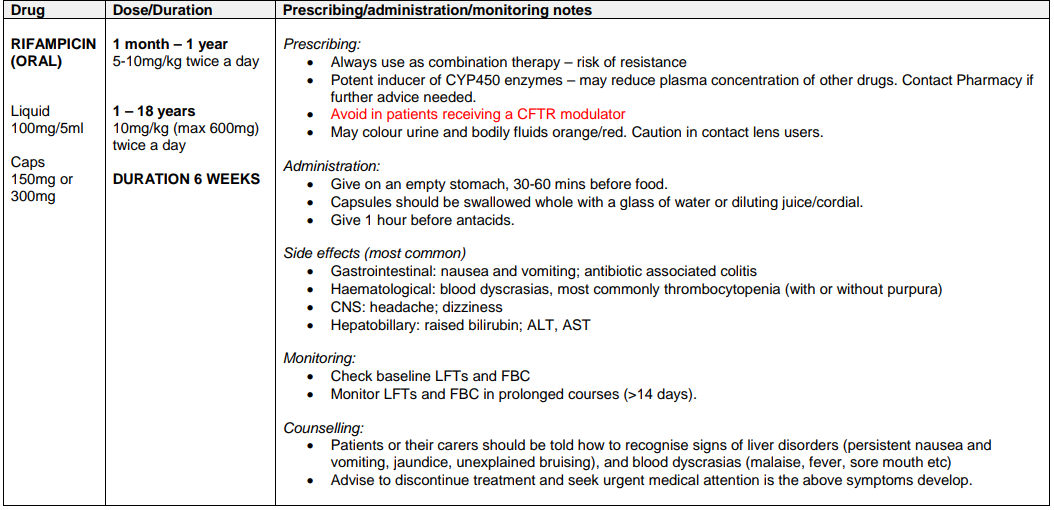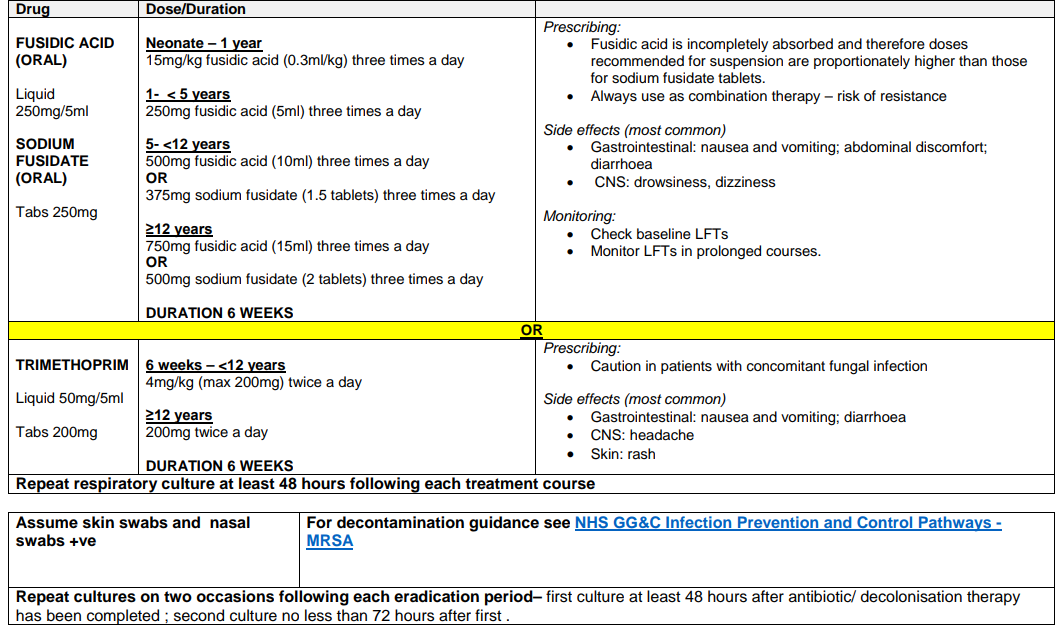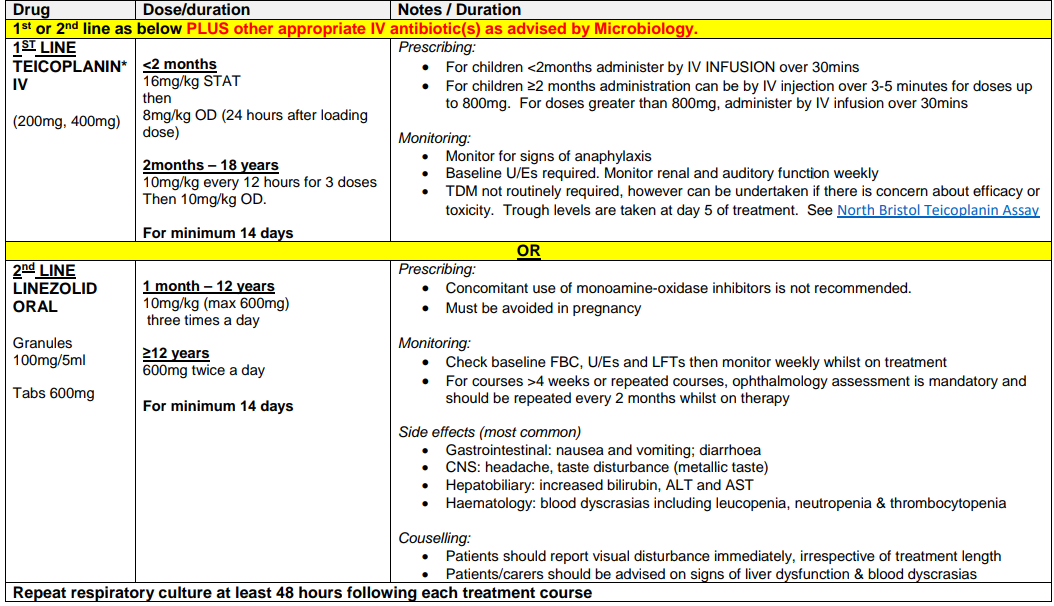“MRSA infection will lead to a reduction in options for antibiotic treatment and a likelihood of deterioration in lung function, therefore MRSA infection should be avoided“
CF Trust MRSA 2008
“At first isolate, or in a person who has been free of MRSA following previous treatment, aim to eradicate the organism.“
CF Trust Antibiotic Treatment for CF 2009
“There are a small number of studies of the use of treatment regimens to eradicate MRSA lower respiratory tract infection in people with cystic fibrosis. The rate of clearance of infection without treatment is unknown. The eradication regimens in these studies have included combinations of oral, intravenous and nebulised antibiotics. The optimum regimen remains unclear...
CF Trust MRSA 2008
If one treatment regimen fails to eradicate MRSA infection, two further attempts with the same or different regimens may still be successful and should be considered.“
CF Trust MRSA 2008



